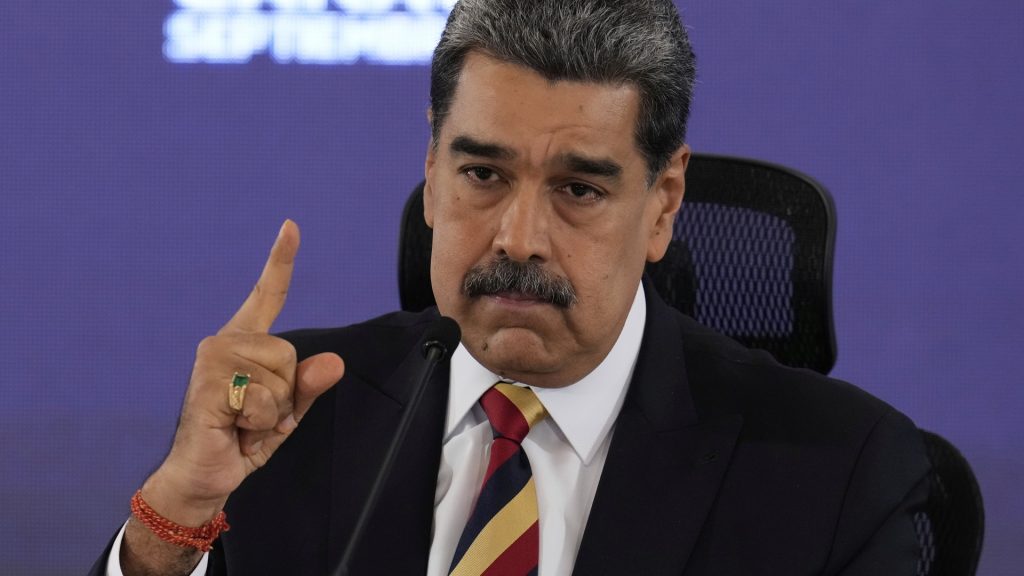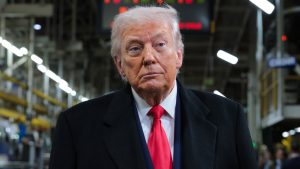What’s behind Maduro’s offer to help the Trump admin target Tren de Aragua?

Venezuela’s leadership is offering to help the Trump administration locate and apprehend leaders of the Tren de Aragua gang. However, the White House has reportedly turned down the offer and maintains that Nicolás Maduro’s presidency is illegitimate.
Maduro’s proposal to target Tren de Aragua
According to a letter seen by Bloomberg, Maduro reportedly sent a proposal to U.S. envoy Richard Grenell in early September, detailing a plan to help the Trump administration take down Tren de Aragua’s senior leadership. The offer follows several U.S. strikes on Venezuelan boats that American officials claimed were transporting drugs.
“I respectfully invite you, President, to promote peace through constructive dialogue and mutual understanding throughout the hemisphere,” Maduro reportedly wrote in the letter.
In response, the White House maintained its opposition to Maduro’s leadership.
“The Maduro regime is not the legitimate government of Venezuela, it is a narco-terror cartel, and Maduro is not a legitimate president,” a White House official said. “The administration’s policy is ‘maximum pressure’ on the Maduro regime, and no negotiations that could potentially benefit the regime are occurring.”
David Smilde, a professor at Tulane University and expert on Venezuelan politics, said Maduro’s offer is two-fold.
“Basically, Maduro is concerned about his future and the United States going further and attacking Venezuela itself, and so he’s basically saying, ‘If you’re concern is the Tren de Aragua, well, we’ll help you catch some of the leaders of Tren de Aragua,’” Smilde told Straight Arrow News.
Smilde added that while he believes Maduro is making the offer in good faith, there’s little chance of Washington recognizing Maduro’s rule as legitimate. “I don’t think that there’s any possibility of him being recognized as a legitimate president through this kind of deal,” Smilde said. “I don’t think he has that in mind, and I don’t think that’s even on the table.”
This, Smilde added, is largely because Washington doesn’t need to recognize Maduro’s legitimacy in order to negotiate with him.
“You can have relations with a country, with its de facto leader –– it doesn’t necessarily have to be seen as legitimate,” Smilde said, citing deportation flights that the Trump administration arranged with Maduro’s government. “So there’s that, you know, kind of functional relationship.”
In his letter, the Venezuelan leader also denied that his country is a significant contributor to drugs reaching U.S. borders. Francisco Rodriguez, a professor of international and public affairs at the University of Denver, said that Maduro’s offer to help track down Tren de Aragua leaders signals a certain level of transparency.
“Maduro seems to intend it as a way of showing there is nothing substantively true about the allegations,” Rodriguez told SAN. “Indeed, the evidence does suggest that, although drug trafficking has penetrated some higher levels of Venezuelan policymaking — as it has across Latin America — there is no strong evidence of an organized structure within the Venezuelan state directing drugs to the U.S.”
US eyes strikes inside Venezuela
Maduro’s offer follows a series of strikes led by U.S. forces on Venezuelan boats allegedly operated by drug traffickers. The strikes began in early September and have continued throughout the month.
Venezuelan authorities responded to a Sept. 2 strike, saying that none of the 11 people on board the boat had ties to Tren de Aragua. Meanwhile, a subsequent strike carried out alongside the Dominican Republic reportedly destroyed a boat transporting 2,200 pounds of cocaine. The strikes have also faced pushback from across the political spectrum in Washington.
While the U.S. strikes have targeted Venezuelan boats in international waters, recent reporting from NBC News suggests that the Trump administration is also weighing the possibility of striking alleged drug operations within Venezuela’s borders.
According to four sources who spoke with the outlet, those strikes could occur within a matter of weeks. They would reportedly target the top leadership and members of drug trafficking organizations, as well as suspected drug production facilities.
The sources, who spoke on condition of anonymity, said the escalating U.S. tactics are a response to Maduro’s failure to address drug trafficking in his country. The administration has also accused Maduro of actively abetting Venezuelan drug traffickers.
A senior Trump administration official told NBC News that the president is “prepared to use every element of American power to stop drugs from flooding into our country and to bring those responsible to justice.”
Smilde cautioned against putting too much stock into NBC’s reporting, telling SAN that if you “look closely, there’s no new information there.”
“Anybody that knows how the Pentagon works, knows that they have offices that, this is all they do all day, is draw different kinds of war plans, come up with a menu of options for Venezuela, for any country in the world, just in case there are tensions with that country,” Smilde said.
He added that what’s contained in the NBC report has “always been my assumption” since the Trump administration first built up a naval presence in the region.
Maduro, meanwhile, has maintained that he has no involvement in the illegal drug trade and accused the Trump administration of using such allegations as a pretext for regime change.
Smilde echoed the sentiment, saying the Trump administration’s threats are largely in service of promises made while running for reelection.
“Trump told his campaign the idea that he was going to bomb the cartels, so he’s doing this –– this is sort of political theater,” Smilde said. “Venezuela is not a major drug importer to the United States –– not significant –– there’s no fentanyl that comes from Venezuela. It’s basically an easy target.”
According to Smilde, if Trump truly wanted to stem the flow of drugs into the U.S., he would target Mexico. Such military action would come at a considerable cost, though.
“Of course, Mexico is a big country, has a big armed forces and there’s a popular president,” Smilde said. “Venezuela is a medium-sized country, has a weak armed forces, it’s been quite deteriorated and has a stigmatized president. It’s a pariah nation. So it’s very easy to do this kind of political theater with.”
Given the fact that Venezuela plays such a small part in international drug trafficking, Rodriguez believes the White House is attempting to destabilize Maduro’s government.
“The administration’s claim that its deployment of troops and navy ships to the Caribbean seeks to reduce drug traffic into the U.S. does not appear very credible. At least, its strong targeting against Venezuela makes it less so, because there is clear evidence that Venezuela is neither a major source of production nor of trafficking of drugs,” Rodriguez told SAN. “This suggests that the administration’s primary aim is to destabilize the Maduro government and to seek regime change, most likely through indirect means.”
What happens next?
Rodriguez said that while he doesn’t expect a full-scale land invasion of Venezuela, he would not be surprised if the U.S. launched air strikes inside its borders, “possibly with the pretext of targeting drug-producing sites.”
“In part, this looks like a psychological operation aimed at generating a credible threat of military action that could push part of the military to turn on Maduro,” Rodriguez said. “At the same time, this type of action carries political benefits for the Trump administration, particularly in catering to the hardline Venezuelan-Cuban diaspora in Florida, a key constituency for politicians such as (U.S. Secretary of State) Marco Rubio and other Florida Republicans.”
According to Rodriguez, the “real question” is how far U.S. military operations targeting Venezuela will go.
“My sense is that it is likely to carry out more strikes, possibly on Venezuelan territory. But I have a hard time seeing this lead to political change in Venezuela,” Rodriguez said. “If anything, such moves tend to consolidate Chavismo and generate a rally-around-the-flag effect, which ends up being counterproductive for any attempt at political transition.”
What is Tren de Aragua?
Tren de Aragua took shape in Venezuela in 2009 and has since spread to other countries, including the U.S. and Canada. The organization served as a flashpoint in Trump’s reelection campaign, and was designated a “foreign terrorist organization” in a February executive order.
While the group is doubtlessly involved in human trafficking, drug trafficking, murder and other violent crimes, experts debate the breadth of its presence in America and whether it poses a significant threat to the country.
“It’s not a group that has the capacity to be an enemy, not of the United States, but of any country,” Ronna Rísquez, a Venezuelan investigative journalist, told El País in April. “It doesn’t even have a solid or very organized structure.”
The post What’s behind Maduro’s offer to help the Trump admin target Tren de Aragua? appeared first on Straight Arrow News.





